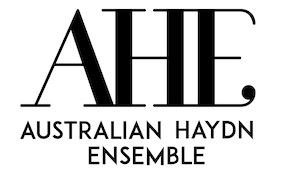Years ago I remember sitting in the Sydney studio of the ABC Classic FM playing a recording of Beethoven’s late String Quartet in A minor Op 132. I think it was around 4am that I was playing the piece and the 20-minute slow movement suddenly got to me as I lay on the studio floor, exhausted and emotional, listening to this music that Beethoven had written and dedicated to his God after achieving a recovery from a terrible few months of ill health. He entitled the movement Heiliger Dankgesang eines Genesenen an die Gottheit (A Convalescent’s Holy Song of Thanksgiving to the Divinity) and the music is so plaintive, you can really hear the direct thoughts of someone who is just grateful to be alive.
If I had one shred of Beethoven’s genius I would have written my own Heiliger Dankgesang as I recovered recently from my annual summer flu. I’m generally a pretty healthy person and usually only have one burst of illness at the end of the year when my system is so obviously run down that when you make the mistake of actually relaxing the germs promptly swarm in like Visigoths at the gates of Rome. It says a lot for the power of the mind that even through exhaustion it is able to keep sickness at bay, but it also says a lot about how busy we all are, and how we expect to achieve so much in a day.
I wonder if Beethoven was required to “multitask” – because I think the concept will be the death of us. While writing this article I have hung a load of washing, spoken to two people on the phone, replied to three emails, contemplated what is in the fridge (and still available for human consumption), as well as giving the cats a manicure. At least I didn’t have to compose a symphony as well. I always thought it a miracle that Mozart could have written his last three magnificent symphonies in the space of six weeks, and this is probably because he was one of the first super multitaskers: he seemed to be playing billiards but was in fact writing music in his head, mapping out symphonic themes while bantering over a glass of wine about the latest intrigues in Viennese musical society. If he were alive today the young Wolfgang would have been dosed up with some drug for ADHD, but it was this extreme multitasking that enabled him to be as creative as he was, but also led him to an early death burnt out at the age of 35.
Illness is nature’s great reset button. I look at myself before my bout of flu as if I was one of those plate spinners you’d see on old variety shows, running from plate to plate, keeping everything in motion. Is it some form of need to be busy at all times? Have you noticed the challenge inherent in a common greeting when we say to friends, “So, have you been busy?” It takes a lot of courage to say, “No, I’ve been twiddling my fingers.” We wear our busyness as a badge of honour, and it doesn’t stop with retirement, with the current crop of grandparents running around like March flies.
When I grow old I can’t imagine anything nicer than sitting in a warm corner of the garden reading book after book until the tendrils of the plants wrap around my bony ankles and I am consumed by foliage. Heiliger Dankgesang.
For more of Guy Noble’s wit and wisdom, check out his Soapbox every month in Limelight magazine.











Comments
Log in to join the conversation.